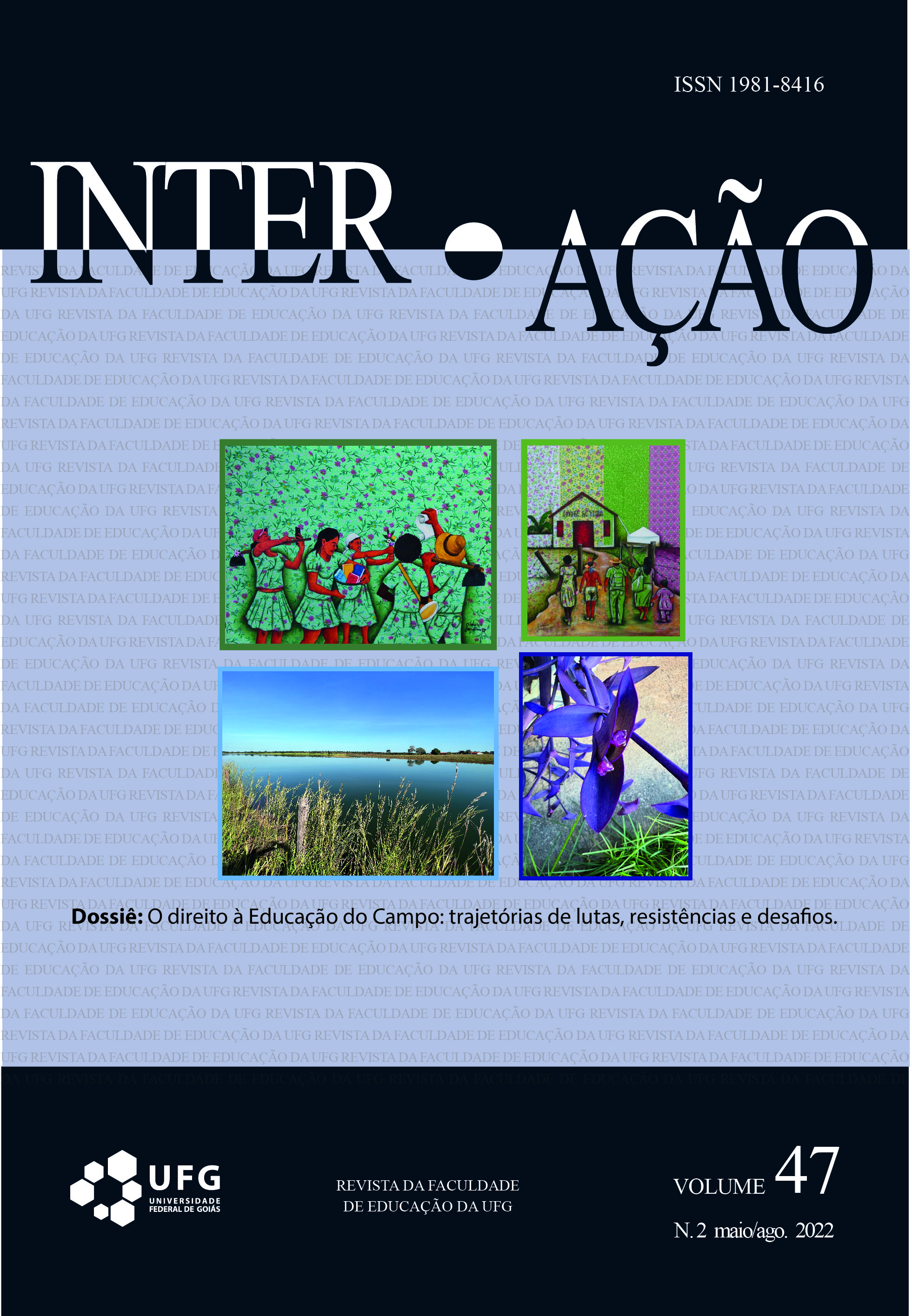THE PUBLIC SCHOOLS LOCATED IN THE COUNTRYSIDE AND THE INSTITUTIONALIZATION OF REFERENCES IN RURAL EDUCATION
DOI:
https://doi.org/10.5216/ia.v47i2.71017Abstract
This article presents a sample of a master's research conducted in the context of an extension project implemented in public schools located in the countryside, in the Southwest region of Paraná, in the period from 2015 to 2020, which sought to socialize the possibilities of institutionalizing, from the practice of public schools located in the countryside, based on legal guarantees, a process of re-articulation of these schools from the perspective of the National Movement for Field Education. The research analyzed, along with the schools in question, the development of references that promoted changes by means of a methodological instrument, of which four moments and places stand out: the Family School Trails, the Inventory of the Reality of the School Surroundings, the Interdisciplinary Collective Planning and the Circle of Knowledge. It was possible to identify that great part of the schools located in the countryside find it difficult to have a perspective of change about crystallized practices, and still rooted in Rural Education, for being distant from the organicity of the Rural People's Social Movements (MSPdoC) and their organizations. To account for these changes in specific realities implies in "producing movement", and "rearticulating bonds" among schools, communities and their surroundings, and also with the managing bodies. Institutionalizing such references and movements of time, space, and methodological tools is a way to guarantee the right to Field Education.
KEYWORDS: Rural Education. Countryside Public School. References. Methodological Instrumentation.
Downloads
Published
How to Cite
Issue
Section
License
Copyright (c) 2022 Angelita Cristine dos Santos, Cecília Maria Ghedini

This work is licensed under a Creative Commons Attribution-NonCommercial 4.0 International License.
Inter-Ação uses the Creative Commons Attribution 4.0 License for Open Access Journals (Open Archives Initiative - OAI) as the basis for the transfer of rights. Open access means making documents available on the Internet free of charge, so that users can read, download, copy, distribute, print, search, or link to the full text of documents, process them for indexing, use them as input data for software programs, or use them for any other lawful purpose, without financial, legal, or technical barriers.
Authors publishing in this journal agree to the following conditions:
1) Authors retain copyright and grant the journal the right of first publication, with the work simultaneously licensed under the Creative Commons Attribution License, which permits redistribution of the work with attribution and first publication in this journal.
2) Authors are permitted to enter into additional, separate agreements for non-exclusive distribution of the version of the work published in this journal (e.g., for publication in an institutional repository or as a book chapter), with attribution and first publication in this journal.
3) Authors are permitted and encouraged to publish and distribute their work online (e.g. in institutional repositories or on their home page) at any time before or during the editorial process, as this may generate productive changes as well as increase the impact and citation of the published work.















